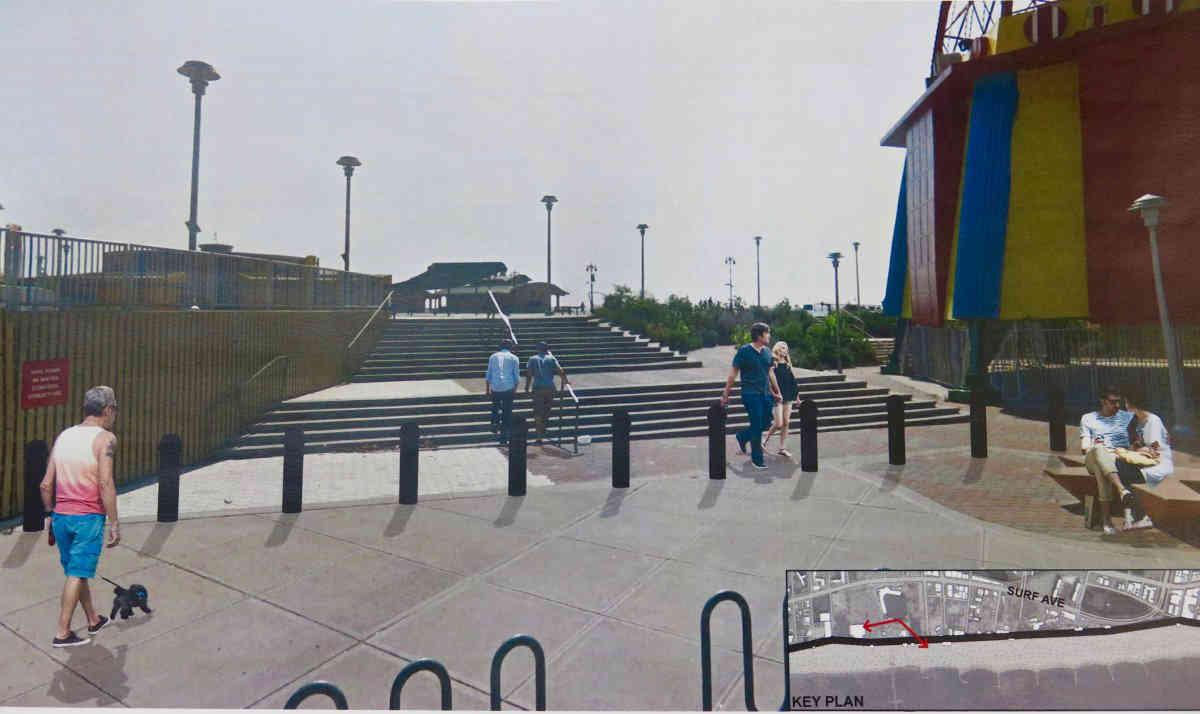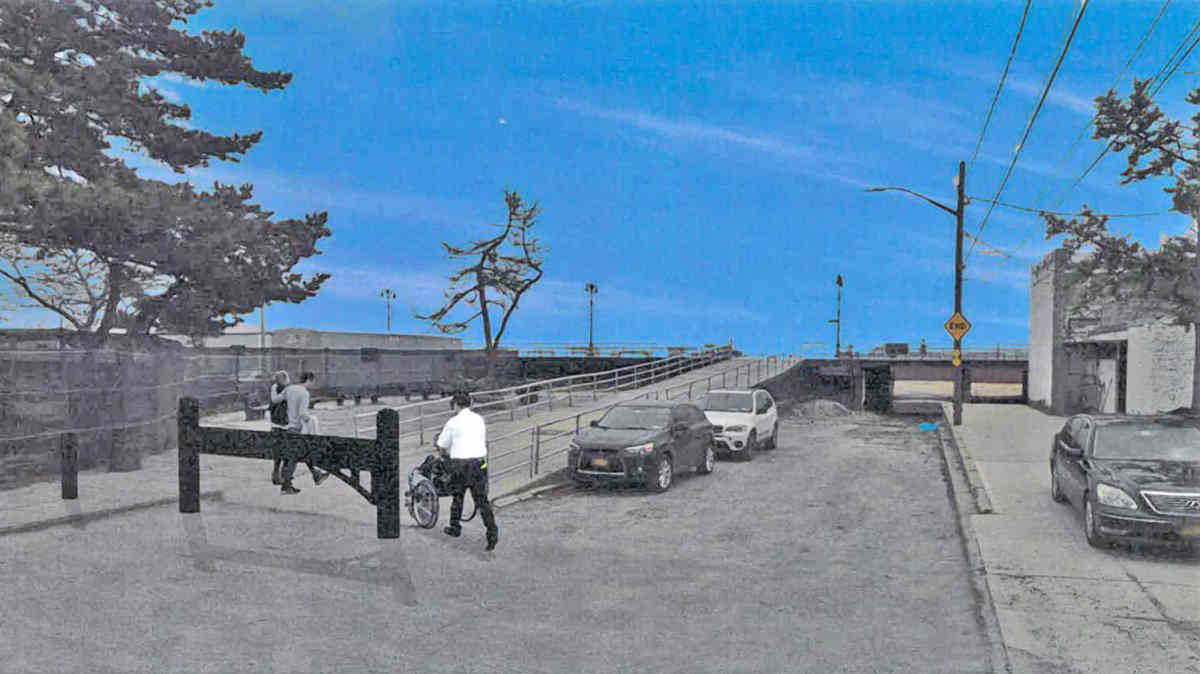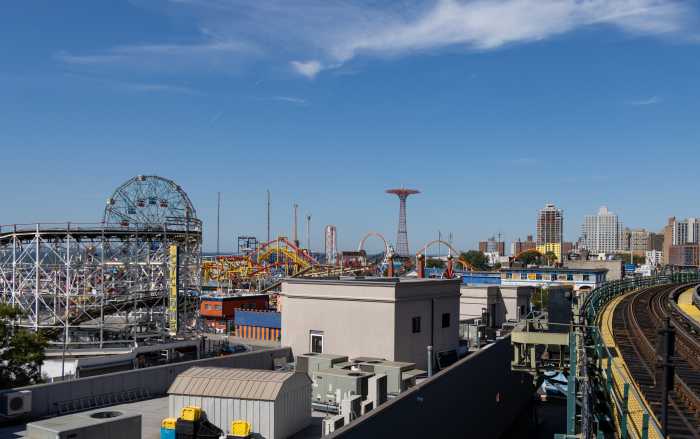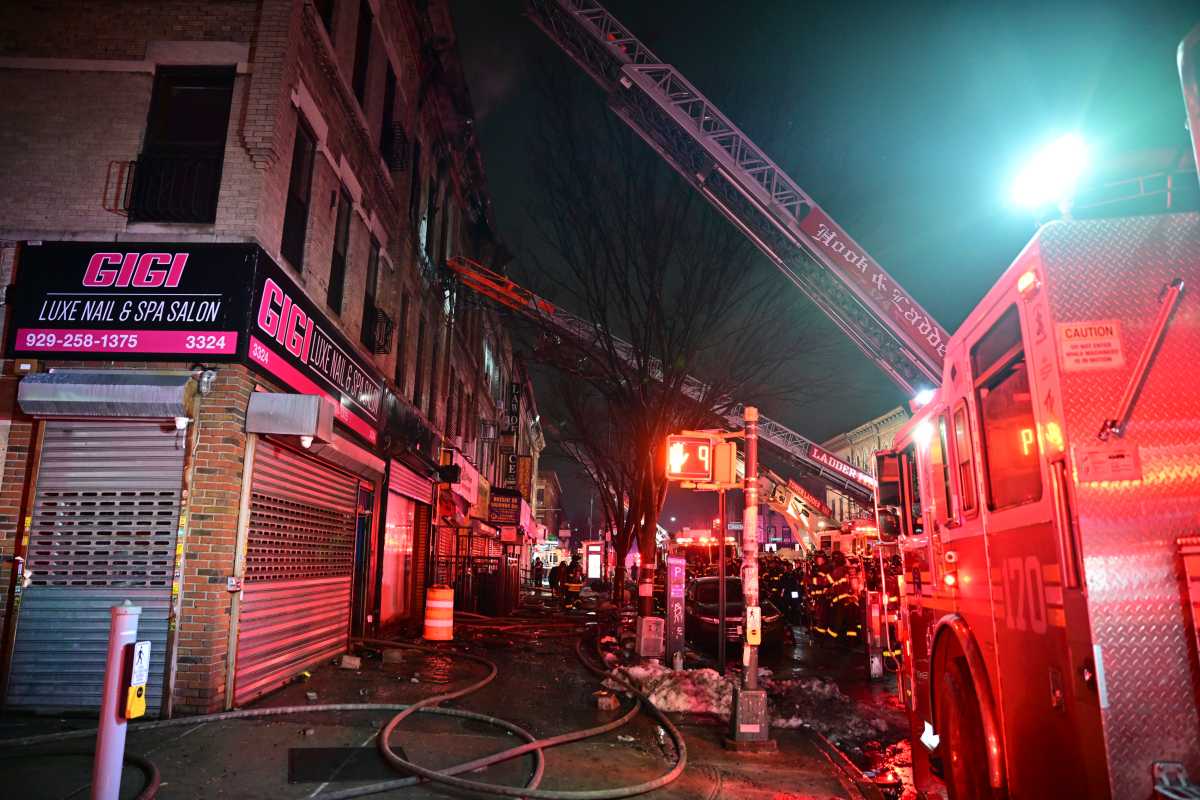The city is spending $3.2 million to install barriers along the Coney Island boardwalk to protect the People’s Playground from a terrorist attack!
“The goal of the project is to limit the vulnerabilities to vehicular terrorism,” said Parks Department rep Abigail Chatfield.
The project — which is a coordinated effort between Park honchos and the Police Department’s Counterterrorism Division — calls for the installation of bollards and gates along the boardwalk’s entrances in an effort to prevent terrorists rolling through with their four-wheeled killing machines.
Councilmen Mark Treyger and Chaim Deutsch proposed the security enhancements following a terrorist attack along the West Side Highway in Manhattan on Halloween 2017, when a truck driver ran over eight pedestrians beside the roadway along the Hudson River Greenway.
“As we’ve sadly seen — both in our own city and on an international level — vehicles are increasingly being used in high-pedestrian-traffic areas as weapons to attack the public,” Councilman Mark Treyger (D—Coney Island) said at the time.
And if a terrorist did strike, it wouldn’t be the first time Coney Island had been targeted by wackos — police cuffed three self-proclaimed jihadists in 2015, after the stooges declared their allegiance to ISIS and plotted to bomb an unspecified target in the neighborhood.
The 150-pound black metal bollards will be just over three-feet high and spaced four-feet apart along the outer edge of the boardwalk, while vehicle entrances will feature five-foot high swing gates — which will be wide enough to allow for wheelchair access, according to authorities.

A Parks Department rep first claimed that the bollards would be retractable, allowing authorities to remove the 150-pound barriers for major events — but a Parks Department spokesman later claimed that they will be unable to move.
The new protective measures won’t be constructed until 2021, and officials are still finalizing their exact locations as they study the effects they would have on emergency vehicles and boardwalk-based merchants.
Many residents have long pushed for the anti-car measures — albeit, to deter police officers and Parks Department officials from damaging the boardwalk’s planks with city vehicles.
“The damage being done by the heavy vehicles in use on our scenic landmark by the Park’s Department and NYPD is clearly and abundantly evident when you walk on the wooden Riegelmann Boardwalk,” Orlando Mendez wrote in a Facebook group dedicated to improving the boardwalk.
The local Community Board’s Parks Committee voted in favor of the scheme’s preliminary designs, but final designs won’t be completed until Spring 2020, according to department reps.
Correction: This story has been updated to reflect the correct price of the barriers. They will cost $3.2 million, according to the Parks Department.


























